Goat farming is a booming industry in Israel. Goats are efficient farmers, and their milk has many benefits for humans. The main purpose of goat farming in Israel is to produce milk, meat, and fiber. In addition, goat milk is popular for its high levels of conjugated linoleic acid (CLA), which has been shown to promote weight loss. Goat meat is also popular for those looking for a healthier option than beef.
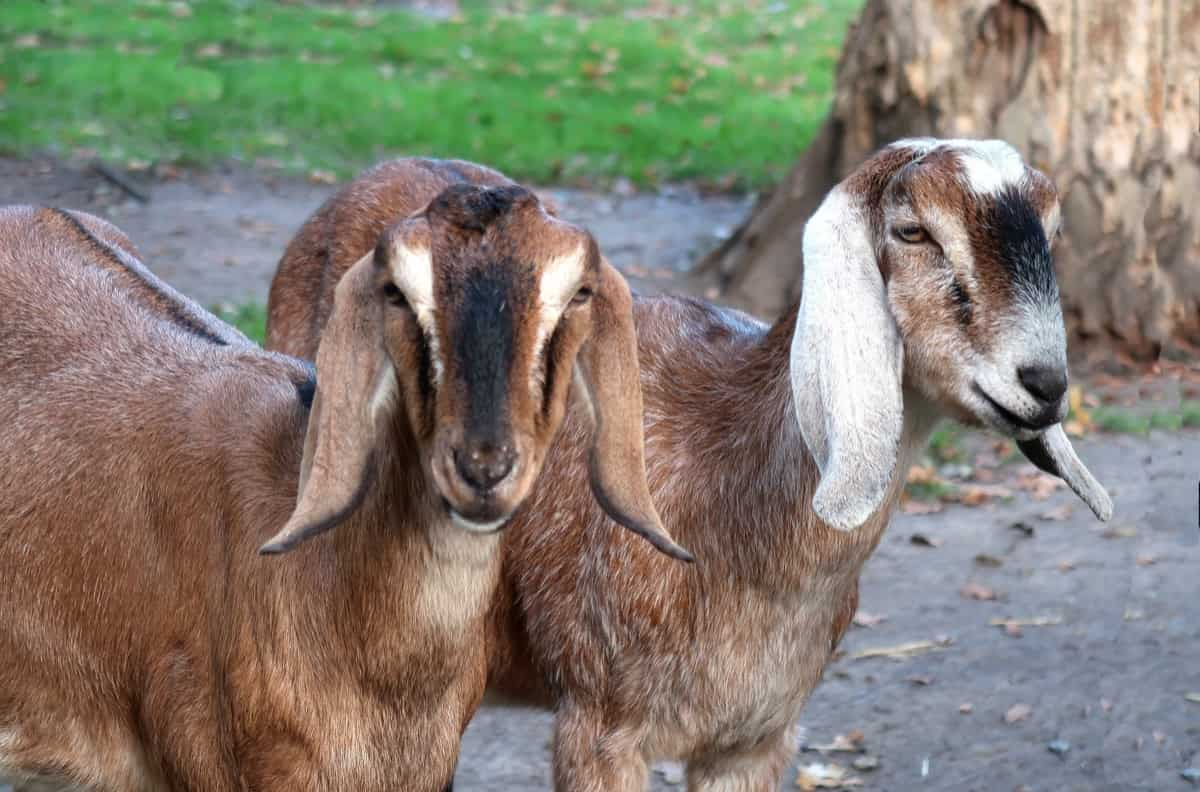
How to start goat farming in Israel
Goat farming importance in Israel
The goat farming industry in Israel is very important due to the country’s high demand for this type of livestock. The main producers of goats are located in the central and southern regions of the country, while exports account for a significant percentage of the total production. Goat farming in Israel relies on a variety of different types of terrain and climates. The country has a wide range of altitudes from sea level to 3,000 meters.
This diversity allows for the cultivation of various crops, including wheat, barley, rye, and vegetable crops. The weather in Israel can be very unpredictable and extreme at times. However, this also makes it one of the most rewarding places to farm goats because goats can adapt well to changing conditions. Today, goat farming is still an important component of the Israeli agricultural sector. There are several reasons for this.
First, goats are well suited to various soil types and climatic conditions, making them versatile livestock animals. Second, goats are easy to raise and manage, making them suitable for small-scale farmers and pastoralists. Third, milk production from goats is of high quality and value, making them a good livestock breed. Goat farming has been an important part of Israeli agriculture for centuries and remains an important part of the country’s economy today.
In case you missed it: How to Start Goat Farming in South Africa: Business Plan, Breeds, Cost, Profit, and Management
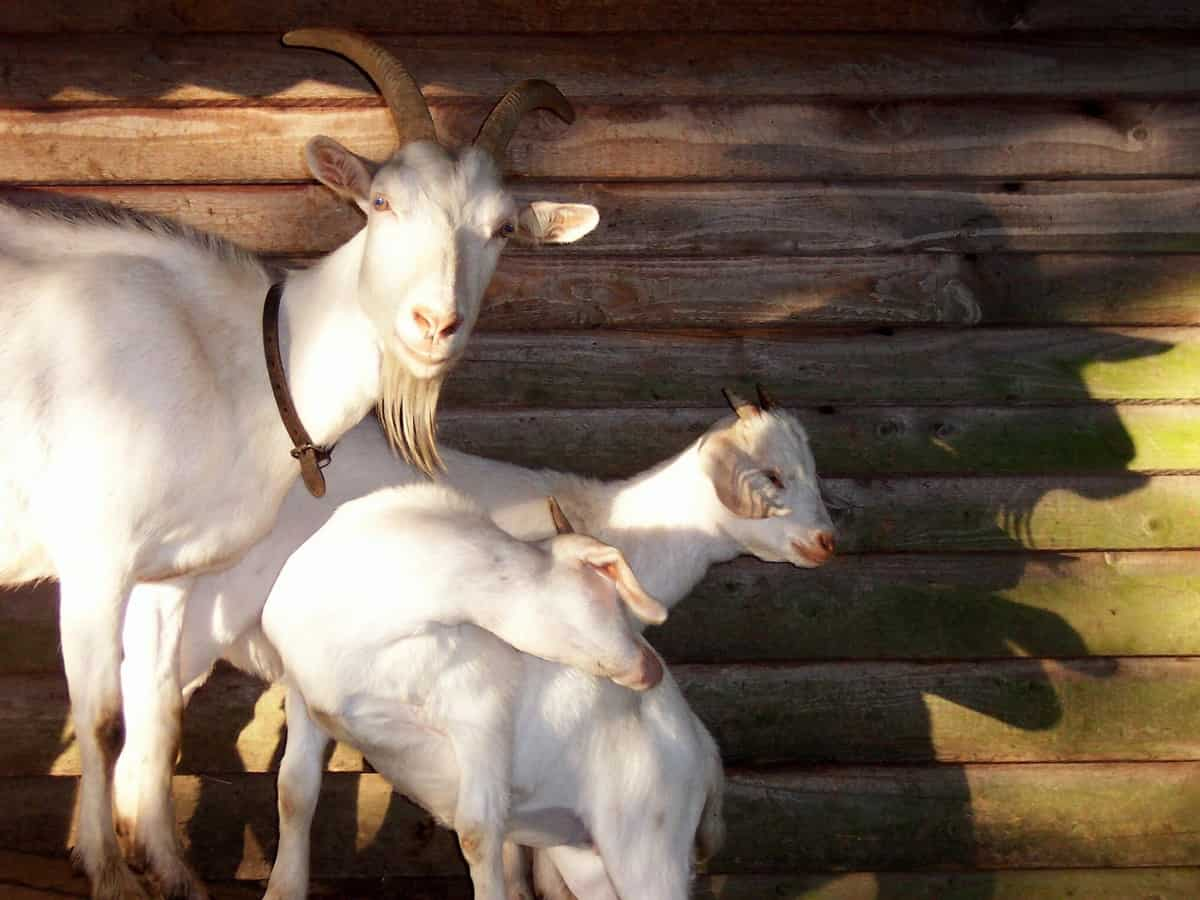
Thanks to their versatility and high milk yield, goats are very popular livestock animals in Israel. Israel has a long goat breeding and farming history, dating back over 3,000 years. Today, around 120 breeds of goats are present in Israel, most of which are used for milk production. However, there is also a growing demand for meat goats due to increased awareness about the health benefits associated with consuming goat meat.
The different types of goats that can be raised in Israel
- A few different types of goats can be raised in Israel. The Aoudad is the traditional type of goat found in the Middle East and Africa. They are hardy and have high meat production.
- The Toggenburg is a European goat breed brought to Israel in the 1950s. They are known for their gentle temperament, and their milk has high butterfat levels.
- The Kiko is a cross between the Aoudad and the Toggenburg, and they are considered one of the best breeds for meat production because they mix both traits. There is also a Pygmy breed of goat found in Israel called the Beja. They are small but tough and have a high milk yield.
How to get started with goat farming in Israel?
The first thing you need to do to get started with goat farming in Israel finds a landowner willing to lease their land to you. Once you have secured the lease, the next step is finding a goat breeder to give you some goats to start your farm with. You will also need fencing, feed, and water tanks. Once you have all of these supplies, it’s time to start your goat farm.
Is goat farming profitable in Israel?
There is a growing trend in Israel of people raising goats as a hobby or for their milk and meat. While it is not a large industry, some believe that goat farming can be profitable. One of the main reasons that goat farming may be profitable is the demand for milk and meat from goat owners. There is also a growing market for artisanal goat cheese, so if you have enough goats, you may be able to sell their milk, meat, and cheese independently.
However, there are also some costs associated with goat farming. For example, you will need to purchase feed, water for your goats, and fencing to keep them contained. Additionally, maintaining your goats’ health and hygiene will be important if you want them to produce healthy milk and meat.
In case you missed it: 19 Key Rules for Effective Goat Farm Management: From Planning to Reducing Production Cost
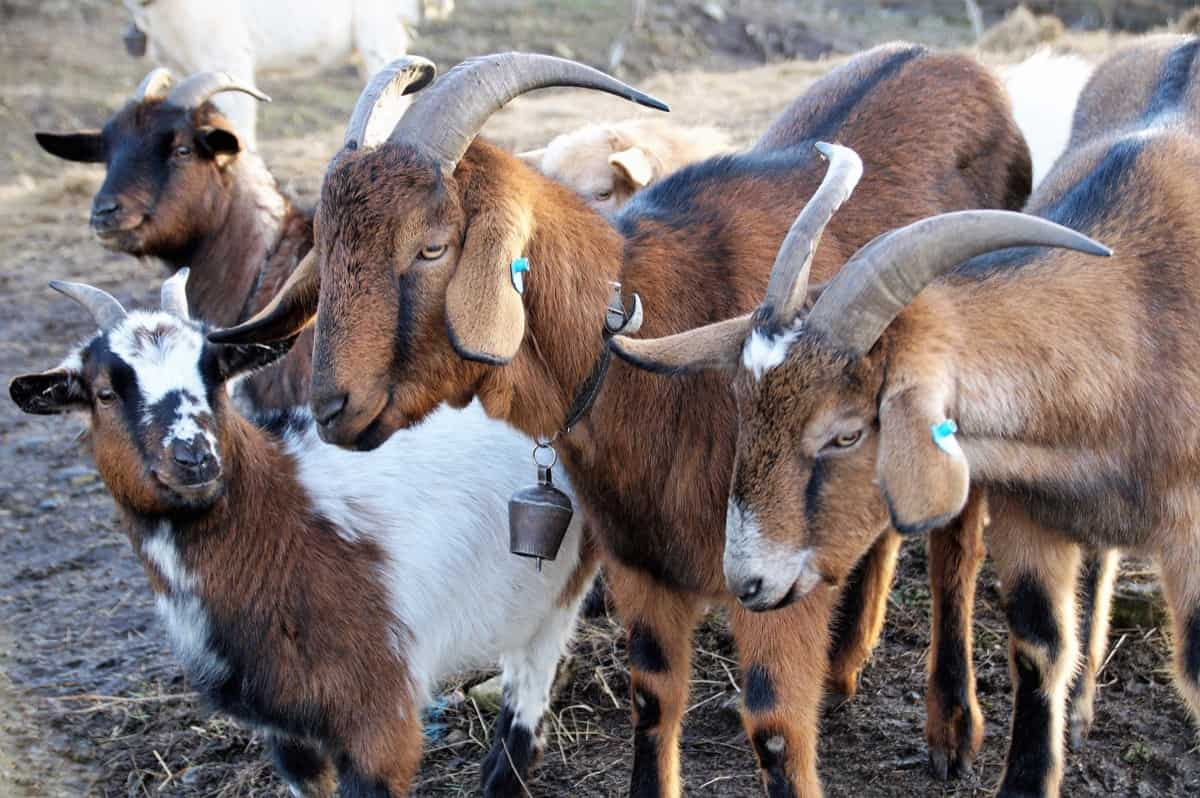
Intensive goat farming in Israel
Intensive goat farming in Israel is a growing industry that has been able to thrive because of the country’s temperate climate, ample land, and skilled labor. The goats are raised on small farms where they can access pastureland and fresh water. They are also kept healthy by being treated with antibiotics and fed a high-quality diet.
Goat farming for beginners in Israel
If you’re thinking about getting into goat farming, there are a few things you need to know to get started. First and foremost, goats are herd animals, so you’ll need some animals. Second, having a good fence is important if you want your goats to live in peaceful surroundings. And lastly, be prepared for a lot of work.
Goat farming areas in Israel
There are many goat farming areas in Israel, with different climates and topography. For example, areas near the Mediterranean Sea have milder winters and are ideal for raising goats, while the north is colder and better suited for raising meat goats. There are several goat-farming states in Israel, each with its production and marketing constraints.
The most productive states are the Golan Heights, which has high rainfall and fertile soil; the Arava region, which is prone to drought but has good grazing grounds; and central Israel, which is best suited for producing milk. In Israel, goat farming faces competition from poultry farming, as consumers prefer chicken meat over goat meat.
Goat feeding management in Israel
Goat feeding management in Israel is a complex and challenging task. The goats are essential to the Israeli agricultural system, providing milk, meat, and fiber products. However, goat feeding can be problematic due to their appetites, and they tend to consume various plants and shrubs.
To manage the goats successfully, it is important to understand their natural habits and preferences. It is also necessary to establish specific feeding schedules for each goat based on its activity level and weight. Feeding should be done orderly so that the goats do not become overloaded. Providing them with hay and water is also important in goat feeding management.
Steps to start goat farming business plan in Israel
- Consider your goals – What does goat farming offer that other livestock options do not?
- Determine what size farm you can realistically manage. For example, a small farm with just a few goats is feasible, but larger farms may be more profitable.
- Find an appropriate location for your farm. Rural areas offer numerous benefits, such as easy access to feed and water and fewer pests and diseases to deal with. urban areas can also be viable locations, provided you have ample space for the goats and adequate fencing to keep them safe from traffic and other animals.
- Develop a business plan that outlines your anticipated costs and profits. This will help you determine whether Goat farming is right for you financially.
- Before starting your venture, get acquainted with the Israeli agricultural system and goat farming rules and regulations. In addition, familiarize yourself with the government agencies involved in Goat farming (such as the Agricultural Ministry) and any additional insurance requirements that may apply (such as animal health insurance).
- Hire an experienced dairy goat breeder or producer to help guide you through the Initial Breeding Program (IBP) process. This is essential if you want to raise registered goats commercially.
In case you missed it: How to Start Goat and Sheep Farming in United Arab Emirates (UAE): A Stall Feed Guide for Beginners
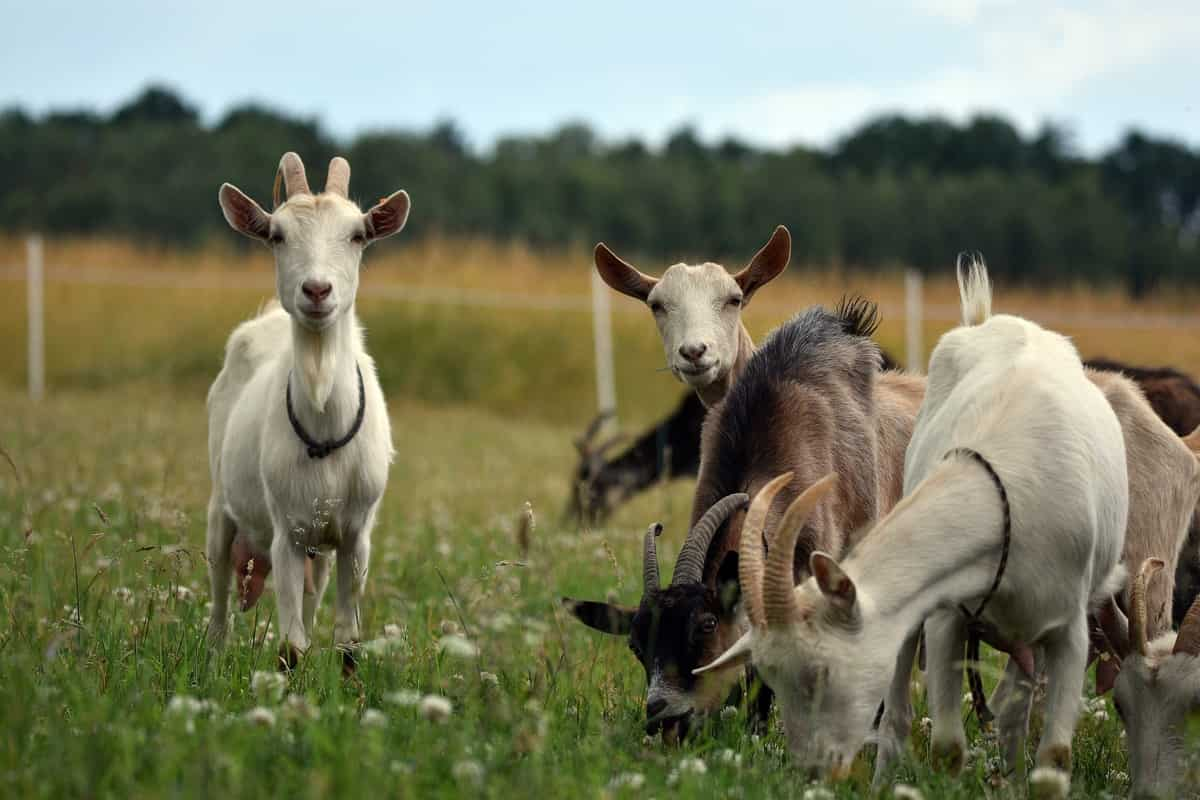
Key rules for starting goat farming in Israel
1. Firstly, research the different types of goats available in Israel and find a breed that suits your climate and needs. Both meat and milk goats are available, so deciding which type you want to raise is important.
2. Next, register with the agricultural authorities in your area and get started with the necessary paperwork. This includes getting a land registration number, registering your animals with authority, and getting a building permit if you plan to house your goats inside.
3. To start a goat farm in Israel, you’ll need to acquire a permit from the Agricultural Authority of Israel (AAI). The permit process can be time-consuming, but it’s well worth it. Once you have your permit, you’ll need to acquire goats.
4. You can purchase goats from farmers selling their animals out of necessity or because they’re moving on to other pursuits. If you’re purchasing goats from a farmer, make sure that you get an agreement signed beforehand specifying the terms of the sale and any responsibilities each party will have.
5. Get your fencing in order before you start raising any goats. A good fence protects your animals from predators and mischief on your property. Make sure to choose the right type of fencing for your climate – an open-wire fence may be too hot or cold in summer or winter, respectively.
6. To raise a goat successfully in Israel, it is important to have access to adequate pastureland and water resources. Goats are also very active animals and require plenty of exercises. If you’re considering getting into goat farming in Israel, ensure you understand the necessary supplies and equipment before getting started.
7. Finally, start feeding your new arrivals their first meal – this will help them get accustomed to their new surroundings and learn how to eat properly. You can give them hay or fresh vegetables as their first food, but introduce them gradually to different feeds, so they don’t become overweight or sickly.
Goat farming types in Israel
- Pasture-based goat farming: This type of goat farming is done on open fields where the goats graze. This is the least intensive form of goat farming and is best suited for small farms that want to raise a few goats.
- Free-range goat farming: In this type of goat farming, the goats can roam freely on natural grazing grounds. This is the most intensive form of goat farming and is best suited for large farms that want to raise a lot of goats.
- Mixed-farming systems: Pasture-based and free-range goat Farming are used together in mixed-farming systems. This allows farmers to maximize their goat’s nutrition while ensuring they do not overgraze their land.
In case you missed it:
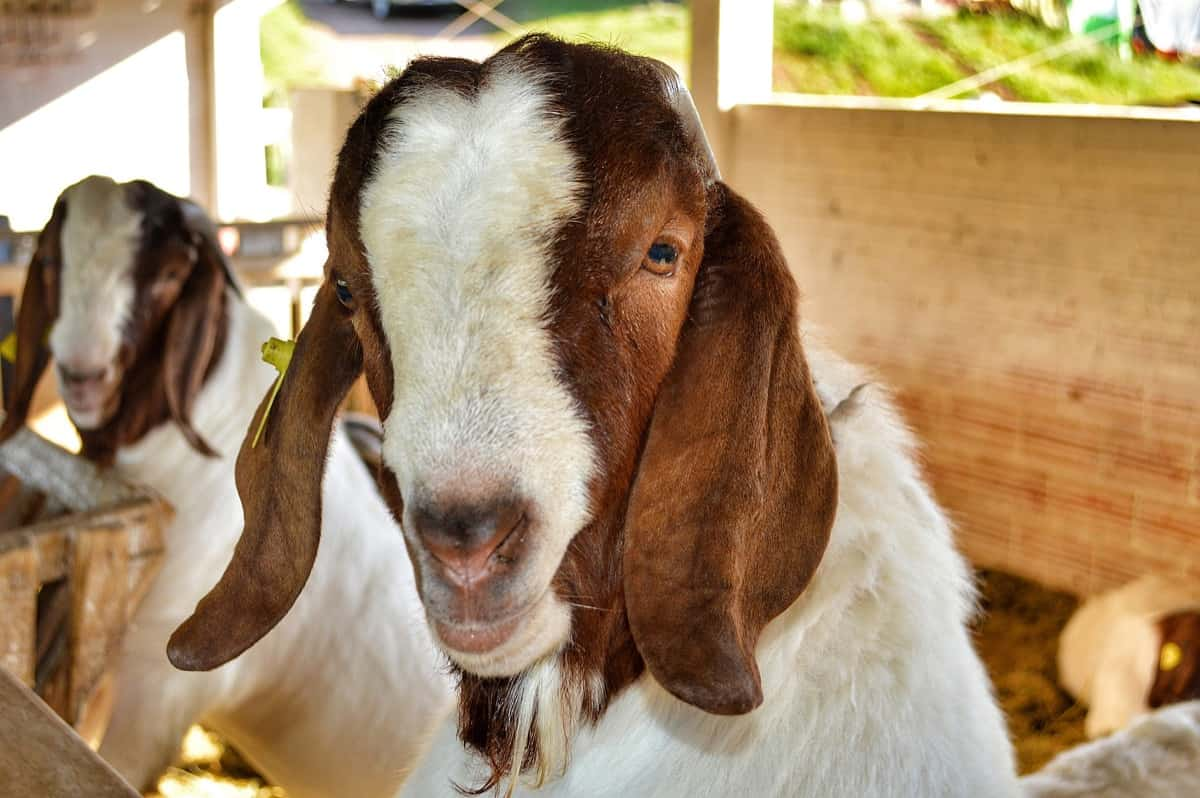
Managing goat farming in Israel
- Establish morning routines for the goats. This will help them get used to the routine and make it easier to manage them.
- Feed the goats hay, grains, and water daily. Make sure they have enough grass to eat.
- Keep an eye on the goats during storms or rainstorms. They can get injured in the path of a storm gust or raindrop.
- Maintain fences around the goat pen so they don’t wander too far away.
- Visit the goat farm regularly to check on the goats and ensure they are properly taken care of.
Goat house design in Israel
The goat house in Israel is a unique and beautiful building that can be found throughout the country. The goats are an important part of the agricultural landscape in Israel, and their houses reflect this. When designing your goat house, it is important to consider the climate in which you live. For example, the houses in the north of Israel are designed to be cold in winter and hot in summer. Conversely, the houses in the south are designed to be cool in winter and hot in summer.
Commercial goat farming in Israel
Commercial goat farming in Israel has grown rapidly in recent years as the demand for fresh, healthy meat increases. With a climate perfect for goat farming and abundant grazing land, Israel is a great place to raise these animals. Goat farming in Israel primarily involves raising domesticated goats for their milk, meat, and hair products. These animals are very useful for farmers because they can graze on shrubs and small trees instead of consuming grasses and other vegetation that can damage farmland.
Furthermore, goats can digest cellulose which makes them helpful in clearing out forests. Israeli farmers use various techniques to keep goats healthy and productive, including fencing, feeding regimes, and vaccinations. Some farmers also breed their goats for certain traits, such as size or color.
Small-scale goat farming in Israel
If you’re interested in raising goats, you should know a few things before getting started in Israel. First and foremost, goat farming is a small-scale operation, so you’ll likely need to be prepared to do some hands-on work. Second, goats are browsers, so you’ll need plenty of grasslands or other meshing areas for them to graze on. And finally, keep in mind that goats are prolific breeders, and unless you have enough space to house all the kids they produce, you’ll likely have to get creative about managing your herds.
Goat farm set-up cost in Israel
If you’re considering starting a goat farm in Israel, keep these costs in mind. The average cost to set up a small goat farm in Israel is around $30,000, but this can vary depending on the size and location of the farm.
In case you missed it: Goat Farming Loan in India: How to Get, Interest Rate, Documents for Banks, Mudra, and NABARD
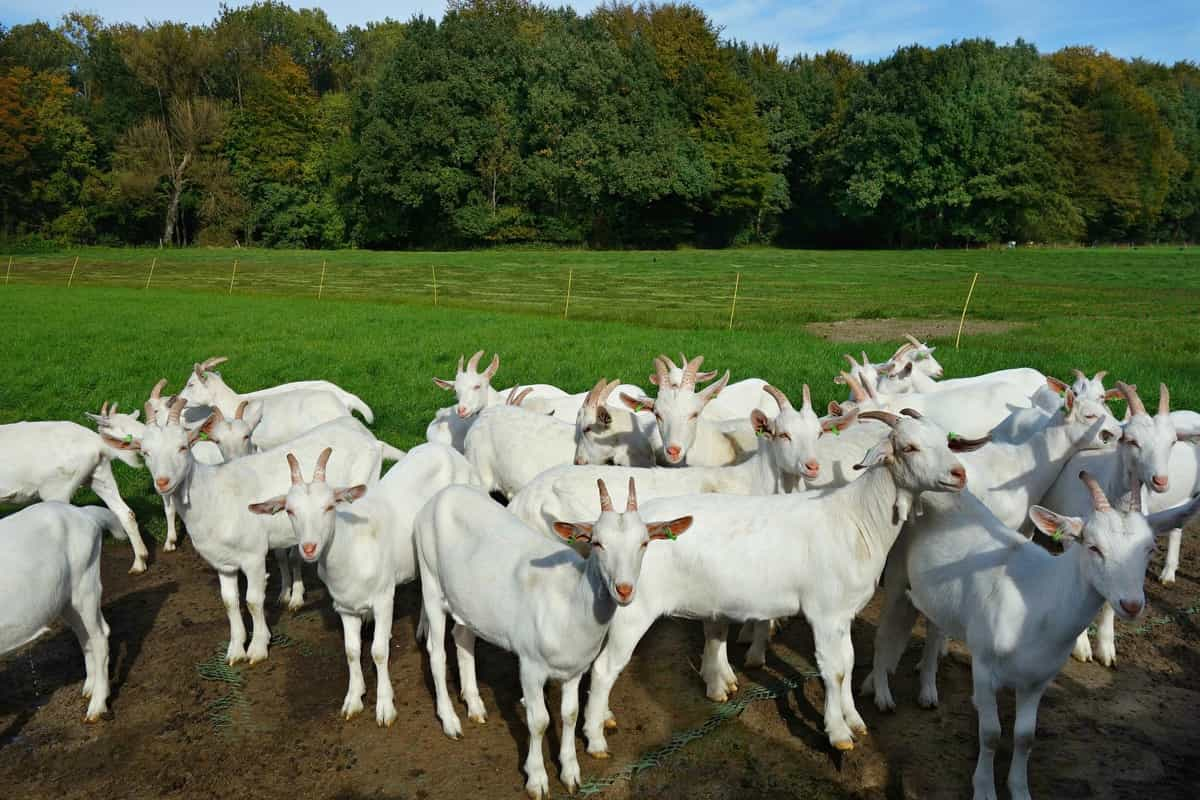
Goat farming loans in Israel
Israel has a long history of goat farming dating back to the ancient Egyptians. The Israel Department of Agriculture and Rural Development currently offers loans to individuals interested in starting goat farming enterprises. The loans are available in two categories: an agricultural loan for farmers who want to start raising goats for their consumption or a dairy loan for farmers who want to start raising goats for sale to the local cheese industry.
There are several important things to keep in mind when applying for a loan from the Israeli government: first, you must have a valid land ownership document showing that you own the land where you plan to raise your goats; second, you must have proof of your financial stability, including documentation of your income and assets; third, you must have an adequate insurance policy covering your farm equipment and livestock; fourth, you must submit an application form and detailed project plan.
The government will lend you up to 87% of the value of your investment (with a maximum loan amount of NIS 1 million). Interest rates on agricultural loans range from 3.5% to 5%, while dairy loans carry interest rates between 4% and 6%. You must also pay back your loans over ten years with minimal monthly payments.
Goat farming problems in Israel
Several problems have been identified with goat farming in Israel. The main issue is that goats are not well suited for tropical climates and often require high feed levels to remain healthy. This can be expensive, and it also means that goat farmers must frequently rotate their crops to keep their land productive. Moreover, goats are notorious for eating a lot of vegetation, which can lead to soil erosion and other environmental problems.
Despite these challenges, Israel remains a major player in the global goat market. This is because the country has developed some effective techniques for dealing with these issues, and it has also developed a strong support network among its goat farmers.
Conclusion
Goat farming in Israel is a sustainable agricultural practice used for centuries to produce quality meat and milk products. Therefore, goat farming is an important part of the agricultural industry in Israel. The country has a long history of goat farming, and currently, there are over 100,000 goat farms in Israel.
- Types of Pesticides Used in Agriculture: A Beginner’s Guide
- Economical Aquaculture: A Guide to Low-Budget Fish Farming
- 15 Common Planting Errors That Can Doom Your Fruit Trees
- How to Make Houseplants Bushy: Effective Tips and Ideas
- Innovative Strategies for Boosting Coconut Pollination and Yield
- Pollination Strategies for Maximum Pumpkin Yield
- The Complete Guide to Chicken Fattening: Strategies for Maximum Growth
- Natural Solutions for Tulip Problems: 100% Effective Remedies for Leaf and Bulb-Related Issues
- Revolutionizing Citrus Preservation: Towards a Healthier, Greener Future
- Natural Solutions for Peony Leaf and Flower Problems: 100% Effective Remedies
- Maximizing Profits with Avocado Contract Farming in India: A Comprehensive Guide
- Natural Solutions for Hydrangea Problems: 100% Effective Remedies for Leaf and Flowers
- The Ultimate Guide to Choosing the Perfect Foliage Friend: Bringing Life Indoors
- From Sunlight to Sustainability: 15 Ways to Use Solar Technology in Agriculture
- The Ultimate Guide to Dong Tao Chicken: Exploring from History to Raising
- The Eco-Friendly Makeover: How to Convert Your Unused Swimming Pool into a Fish Pond
- Mastering the Art of Delaware Chicken Farming: Essentials for Healthy Backyard Flocks
- 20 Best Homemade Fertilizers for Money Plant: DIY Recipes and Application Methods
- How to Craft a Comprehensive Free-Range Chicken Farming Business Plan
- Brighten Your Flock: Raising Easter Egger Chickens for Beauty and Bounty
- How to Optimize Your Poultry Egg Farm Business Plan with These Strategies
- Subsidy for Spirulina Cultivation: How Indian Government Schemes Encouraging Spirulina Farmers
- Ultimate Guide to Raising Dominique Chickens: Breeding, Feeding, Egg-Production, and Care
- Mastering the Art of Raising Jersey Giant Chickens: Care, Feeding, and More
- Ultimate Guide to Raising Legbar Chickens: Breeding, Farming Practices, Diet, Egg-Production
- How to Raise Welsummer Chickens: A Comprehensive Guide for Beginners
- How to Protect Indoor Plants in Winter: A Comprehensive Guide
- Ultimate Guide to Grow Bag Gardening: Tips, Tricks, and Planting Ideas for Urban Gardeners
- Guide to Lotus Cultivation: How to Propagate, Plant, Grow, Care, Cost, and Profit
- Agriculture Drone Subsidy Scheme: Government Kisan Subsidy, License, and How to Apply Online
- Ultimate Guide to Raising Araucana Chickens: Breed Profile, Farming Economics, Diet, and Care
- Bringing Hydroponics to Classroom: Importance, Benefits of Learning for School Students
- Ultimate Guide to Raising Polish Chickens: Breed Profile, Farming Economics, Diet, and Care
- Ultimate Guide to Raising Australorp Chickens: Profile, Farming Economics, Egg Production, Diet, and Care
- Silkie Chicken Farming: Raising Practices, Varieties, Egg Production, Diet, and Care
- Sussex Chicken Farming: Raising Practices, Varieties, Egg Production, Diet and Care